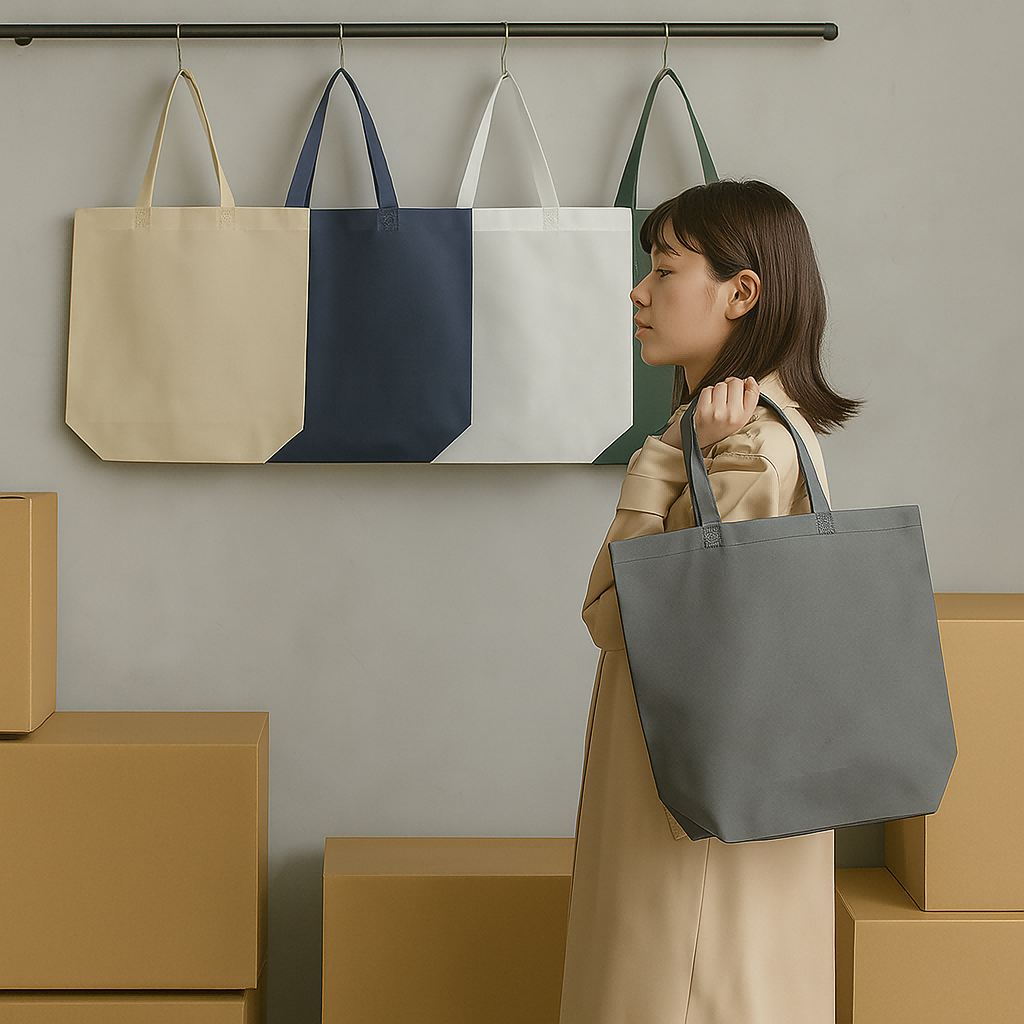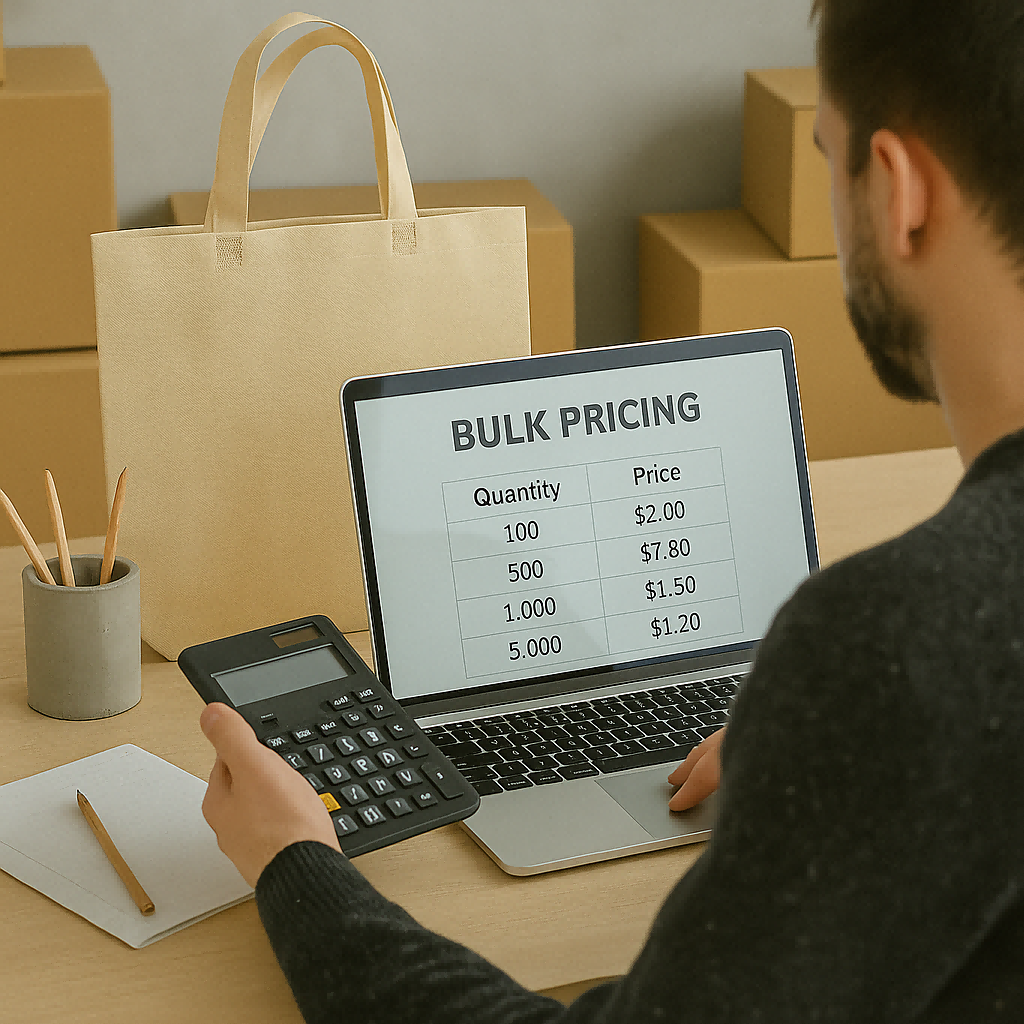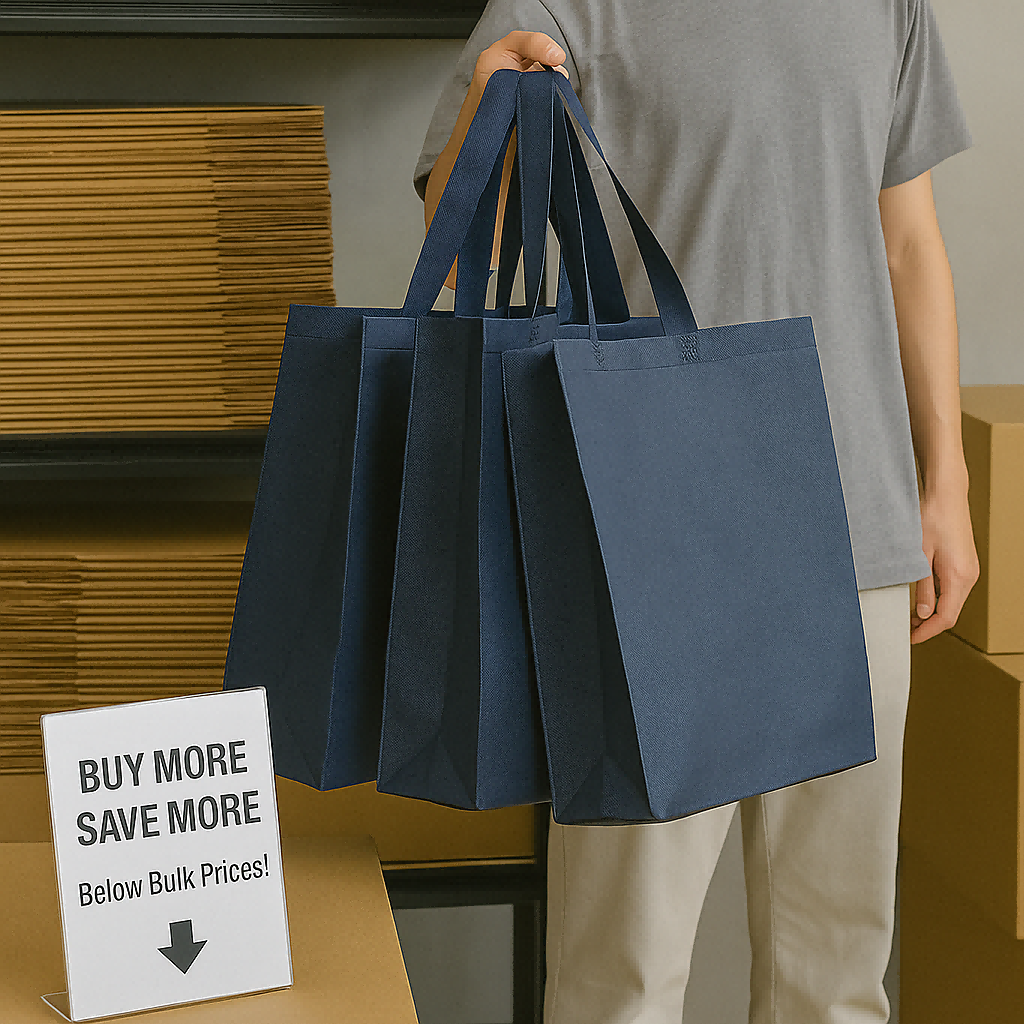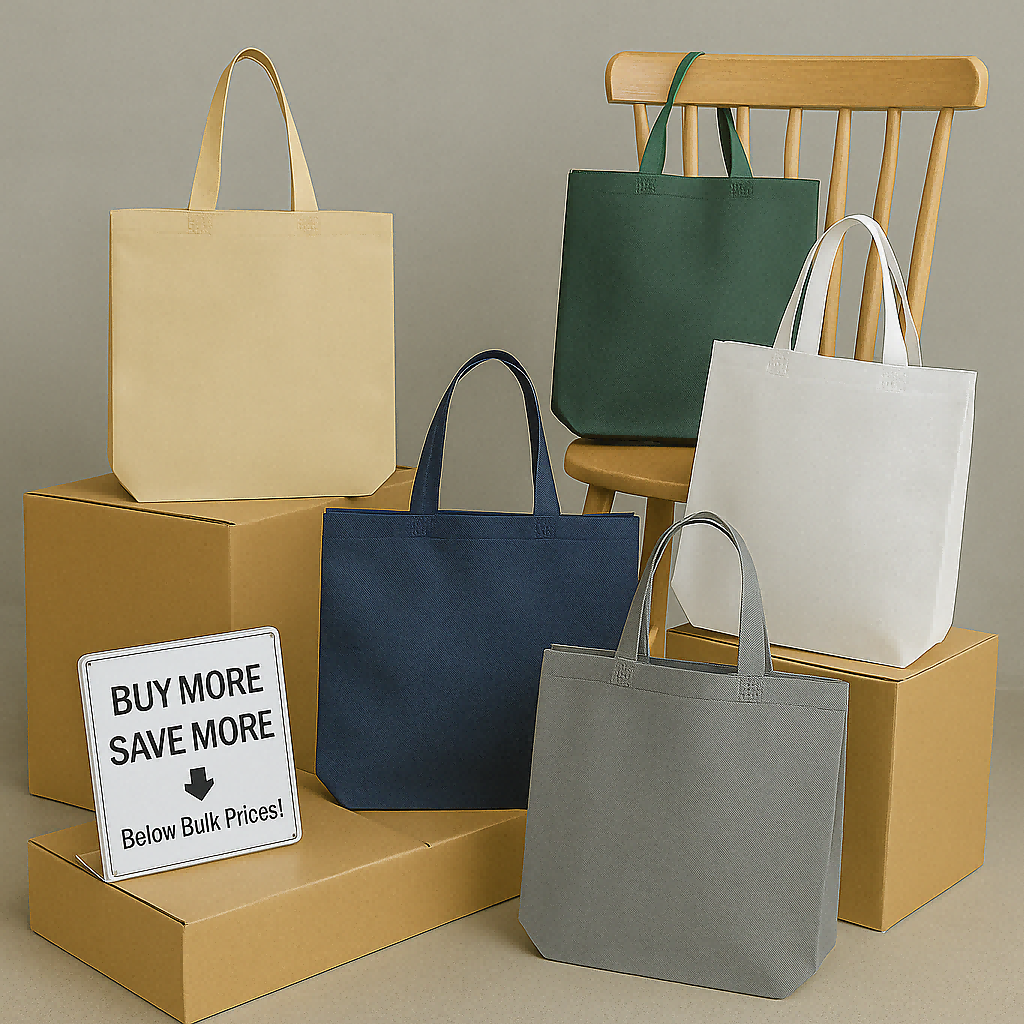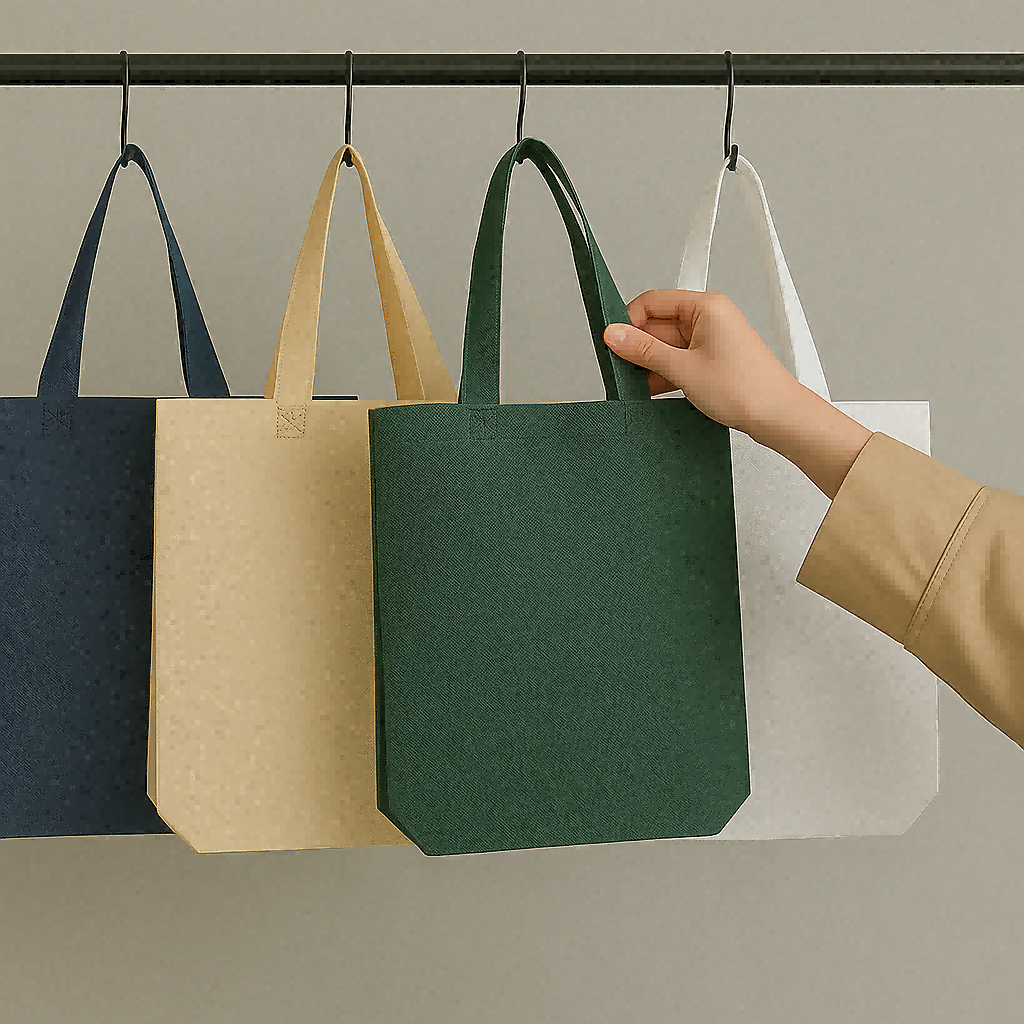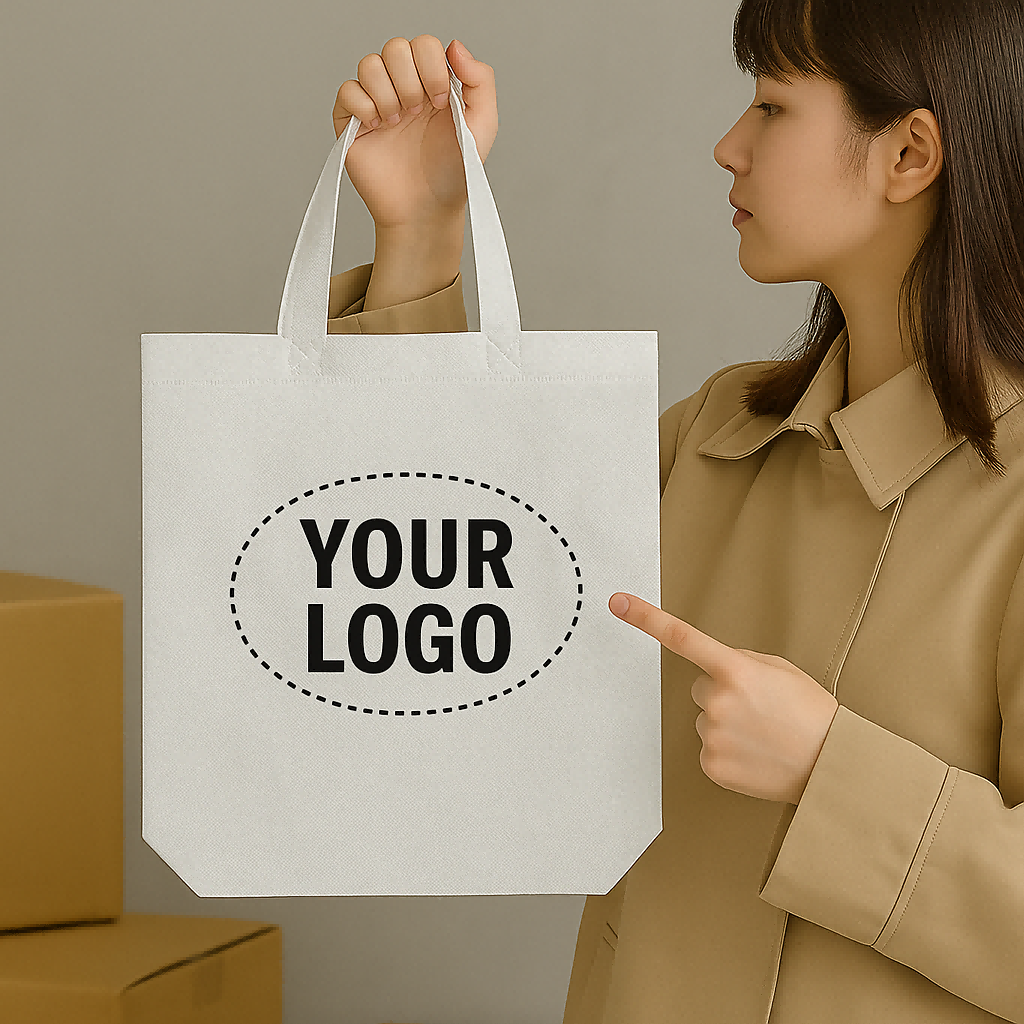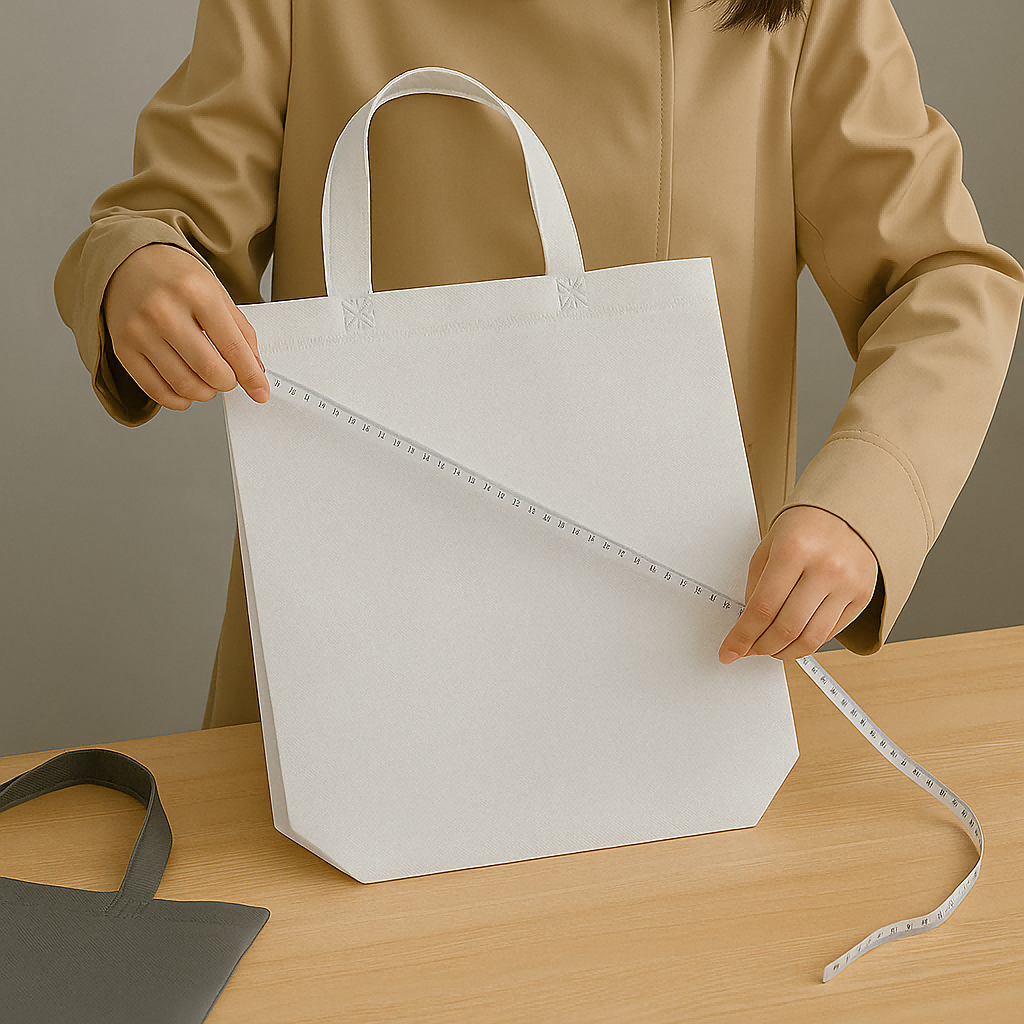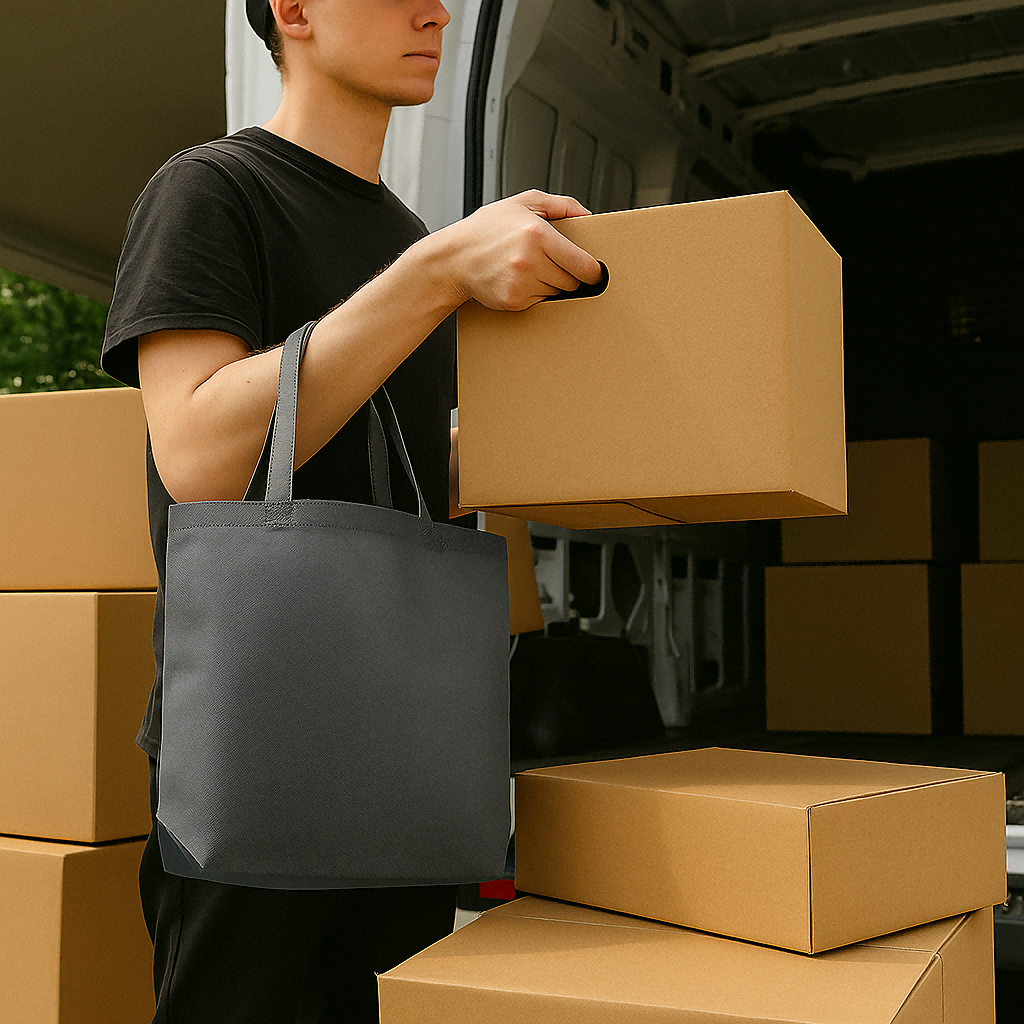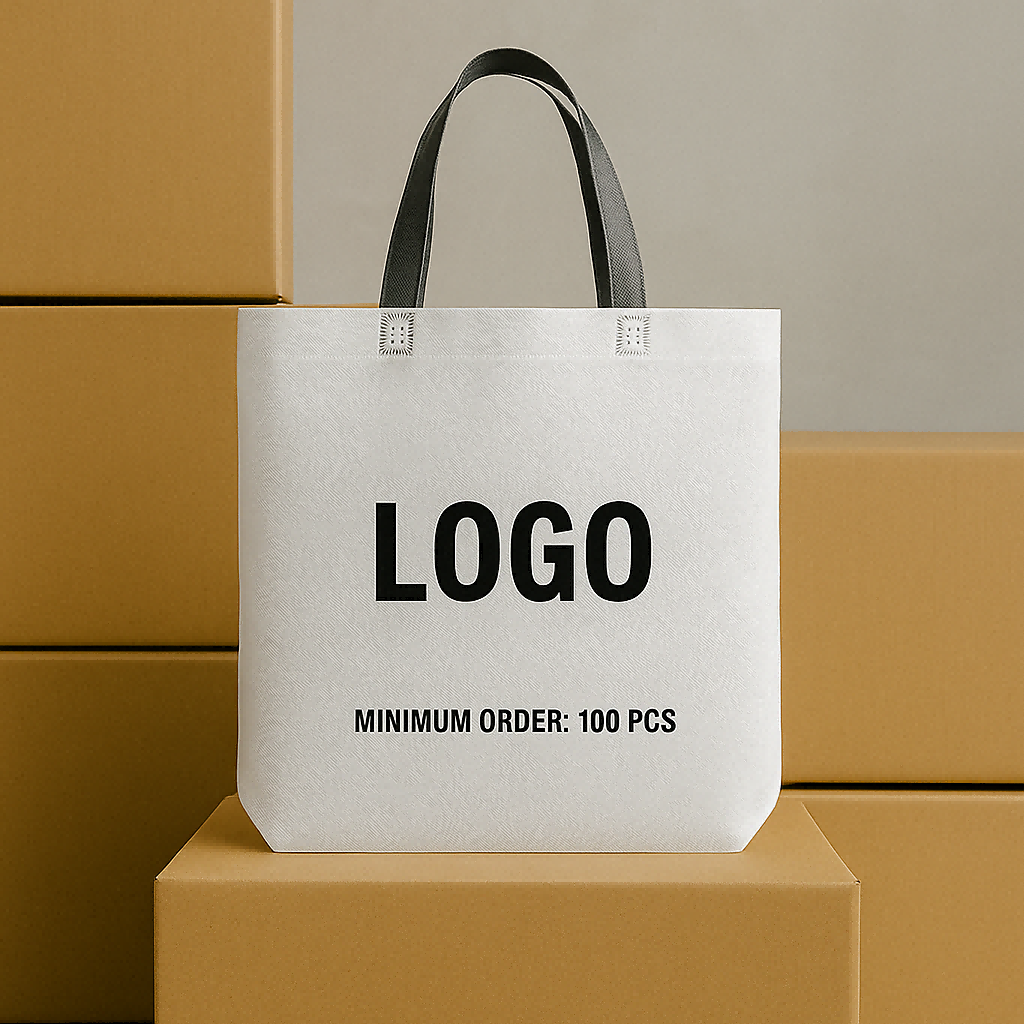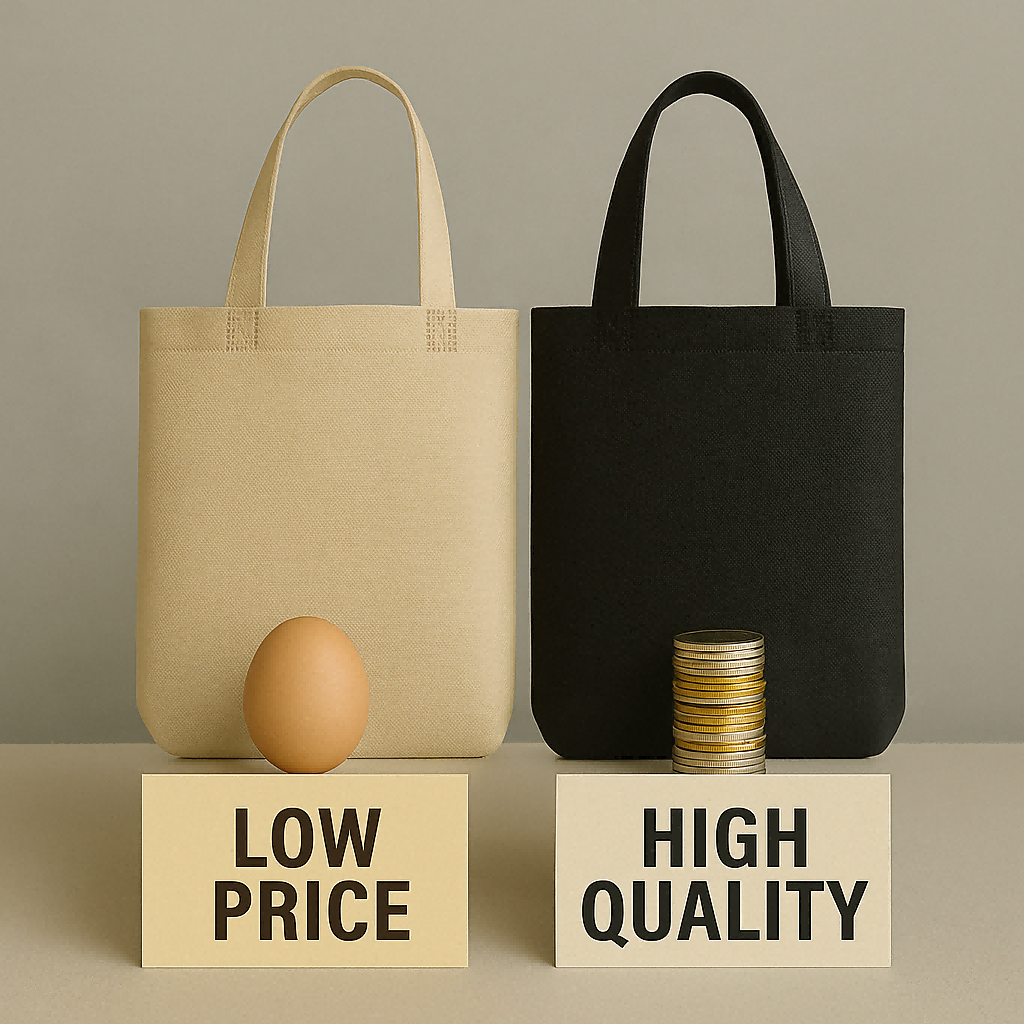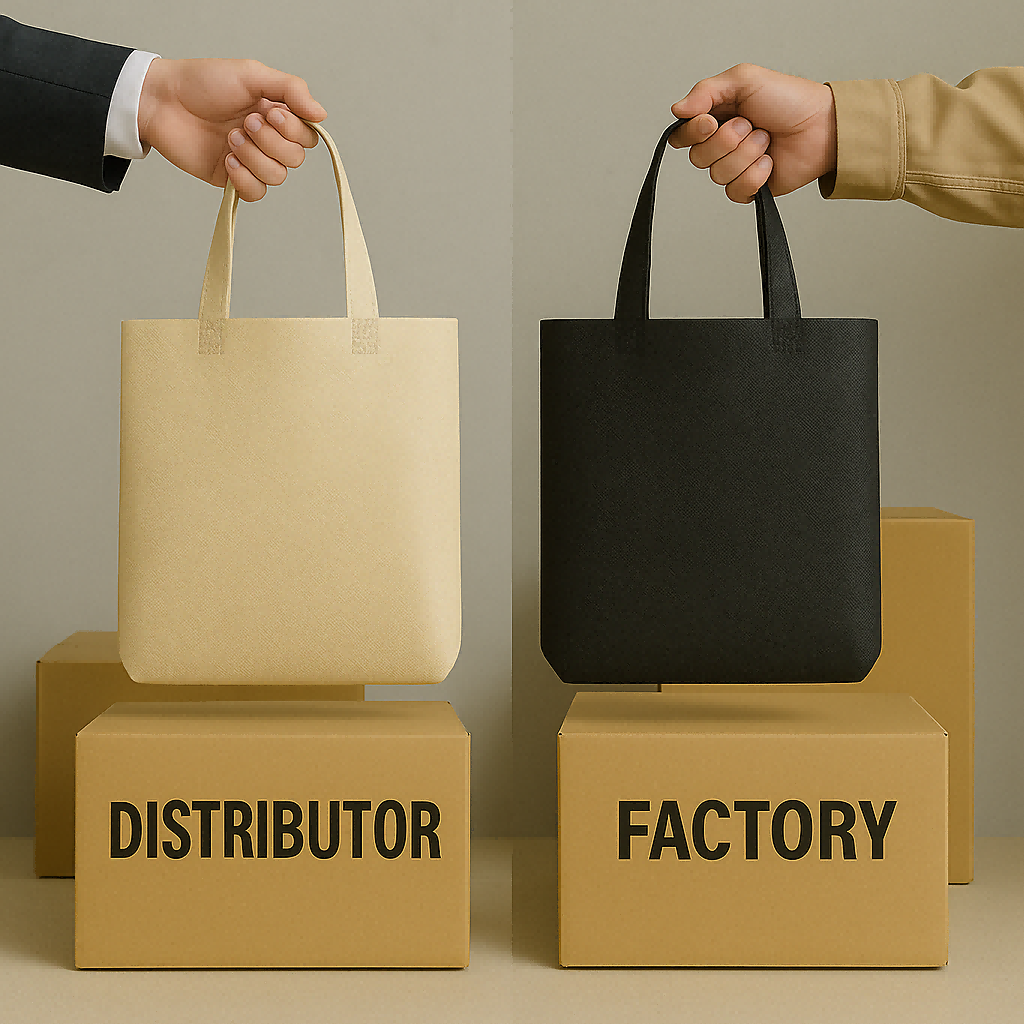Stuck between price and quality when ordering wholesale bags? You’re not alone. Let’s break down how to buy smart in bulk.
Buying non-woven bags in bulk means understanding price structures, customization limits, and shipping logistics1. This guide reveals key strategies to secure top quality at the best price.
Want to avoid costly mistakes and build a reliable bag supply chain? Let’s dive into the expert insights that will help you source smarter.
How Bulk Pricing Works & What Affects It?
Worried you’re not getting the best deal per unit? It’s likely due to missing the sweet spot in bulk pricing.
Bulk pricing depends on tiered structures, raw material fluctuations, and factory production capacity2. More quantity often means better unit prices.
Understanding Tiered Pricing
Most suppliers offer different pricing levels depending on your order volume:
| Quantity Range | Estimated Price per Bag |
|---|---|
| 500 – 1,000 pcs | $0.55 |
| 1,001 – 5,000 pcs | $0.45 |
| 5,001 – 20,000 pcs | $0.35 |
| 20,001+ pcs | $0.30 |
Even a small jump in quantity could result in noticeable savings.
Why Prices Fluctuate
- Raw Material Costs: Polypropylene and RPET3 prices change with oil prices.
- Production Load: Factories increase pricing when nearing full capacity.
- Customization Requests: More colors or unique designs require more labor.
To secure the best price, request quotations for multiple quantity tiers and ask if early booking or off-peak production can offer better terms.
Volume Discounts: Where the Real Savings Begin?
Thinking of ordering 3,000 bags now and another 3,000 later? You could be leaving money on the table.
Volume discounts reward larger orders4 with reduced unit costs, lower shipping rates, and better negotiation power.
Why Bigger Orders Win
Consider this simplified comparison:
| Order Strategy | Cost/Unit | Total Shipping | Customization Fee | Total Cost |
|---|---|---|---|---|
| Two 3k Orders | $0.42 | $250 × 2 | $90 × 2 | $3,270 |
| One 6k Order | $0.36 | $380 | $120 | $2,760 |
Savings: $510 — enough to fund a premium printing upgrade or express delivery.
Also, factories often prioritize higher-quantity clients, giving you better access to raw materials and production slots.
Best-Selling Non-Woven Bags in the Wholesale Market?
Not all bags are created equal. Choosing a best-seller can reduce your risk and increase your reusability.
Top-selling non-woven bags often include laminated totes, die-cut handle bags, and gusseted grocery bags5 in standard sizes and colors.
What’s Hot Right Now?
| Style | Popular With | Features |
|---|---|---|
| Glossy Laminated Tote | Supermarkets, Retailers | Shiny, water-resistant, strong |
| Die-Cut Handle Bag | Events, Promotions | Lightweight, stackable |
| Box Bottom Bag | Grocery Chains | Holds heavy items, reusable |
Want a bestseller? Ask your supplier what style accounts for the most volume in the past 3 months. This helps avoid dead stock.
Choosing the Right Colors for Mass Production?
Trying to make your bag stand out without complicating production?
Popular mass-production colors like black, white, navy, and gray6 are cost-effective and reliable for consistent print quality.
How to Choose Colors That Work
- Core Colors: Black and white are budget-friendly and widely stocked.
- Bold Colors: Red, yellow, and blue attract attention in retail spaces.
- Custom Colors: Require dyeing and may cause slight delays.
Most importantly, choose colors that align with your brand message. A fitness brand might favor energetic hues, while a grocery chain may want natural earth tones.
Common Logo Print Zones That Boost Brand Visibility?
Placing your logo in the right spot can turn every bag into a walking billboard.
Front center and side gussets are the most effective areas for logo placement, ensuring high visibility during use.
Maximize Logo Impact
| Zone | Why It Works | Best For |
|---|---|---|
| Front Panel | Always visible when carried | Logos, taglines |
| Side Gussets | Catches side glances in store aisles | URLs, contact info |
| Bottom Panel | Subtle branding | Hashtag, special offers |
Consider reflective or metallic inks for nighttime visibility or upscale events. Ask your supplier if they support these special inks.
Custom Sizes Available for Bulk Orders?
If your product doesn’t fit, a standard bag size won’t cut it.
Bulk non-woven bags can be tailored in width, height, and gusset depth to fit your specific product or promotion need.
Most Requested Custom Sizes
| Use Case | Custom Size (cm) | Features |
|---|---|---|
| Grocery Packaging | 40x35x15 | Box base, reinforced handles |
| Cosmetics Promotion | 30x25x10 | Zipper closure, glossy lam |
| Apparel Orders | 45x40x20 | Flat bottom, matte finish |
If you need to ship unique items (like yoga mats or wine bottles), custom sizing avoids over-packaging and enhances the unboxing experience.
Fast Shipping & Reliable Stock for Large Orders?
Deadlines matter. Especially for promotional campaigns and seasonal sales.
Factories with ready-made stock or streamlined logistics can ensure faster delivery, even for large orders.
Shipping Smarter
- Ask for “Ready-to-Ship” options in common sizes.
- Use suppliers with in-house freight teams.
- Consider air freight for urgent samples, sea freight for bulk orders.
Bonus tip: Build a 3-month buffer stock for repeat orders and ask your supplier about warehousing solutions if you have storage issues.
MOQ for Custom Printing: What You Should Know?
You’ve finalized your artwork, but are you eligible for printing?
Most suppliers require a MOQ of 1,000 pcs for single-color printing and 3,000+ for multi-color7 or full-print customization.
MOQ Scenarios
| Print Method | MOQ | Suitable For |
|---|---|---|
| One-color Screen | 1,000 | Logos, simple designs |
| Two-color Screen | 2,000 | Events, campaigns |
| Full-color Heat Press | 3,000+ | Detailed art, photographic prints |
If you’re new, ask about combining multiple SKUs (colors/sizes) under one MOQ to reduce cost while testing variety.
Price vs. Quality: Striking the Right Balance?
Low price is tempting—until your bags tear or fade after one use.
Balancing price and quality means reviewing fabric weight (gsm), lamination type, and stitching method8. Don’t sacrifice durability for pennies.
What to Watch For
| Feature | Budget Choice | Premium Choice |
|---|---|---|
| Fabric | 80gsm, uncoated | 120gsm, laminated RPET |
| Stitching | Ultrasonic seal | Double needle with reinf. |
| Handles | Flat strip handles | Padded, cross-stitched |
Always request pre-production samples, and ask about return policies or quality inspection options before finalizing contracts.
Trusted Distributors vs. Direct Factories: Who to Choose?
Is it better to work with a middleman or go straight to the source?
Direct factories offer better prices and customization, while distributors may provide smoother communication and faster issue resolution.
Weighing Your Options
| Type | Strengths | Risks |
|---|---|---|
| Factory Direct | Best pricing, direct feedback | May lack English support |
| Distributors | Better communication, post-sale support | Markup in unit cost |
Larger brands or buyers with QC teams usually prefer factory direct. But if you’re new to importing, a reliable distributor reduces stress.
Conclusion
Ordering non-woven bags in bulk is more than clicking “Buy.” Understand pricing, design, logistics, and quality to make every order count.
-
Understand bulk order dynamics: pricing tiers, design limits, and delivery flow. ↩
-
Know what drives bulk pricing and how to negotiate better rates. ↩
-
Learn why polypropylene and RPET costs fluctuate with oil prices. ↩
-
Find out how bulk orders cut cost and improve supplier prioritization. ↩
-
Discover which bag styles sell best and minimize inventory risks. ↩
-
Learn which colors are easiest to mass-produce while ensuring brand impact. ↩
-
Understand what print quantity thresholds unlock multi-color customization. ↩
-
Balance cost with durability by knowing which fabric and stitching to choose. ↩

